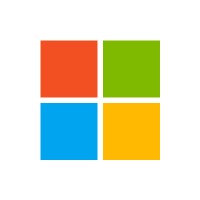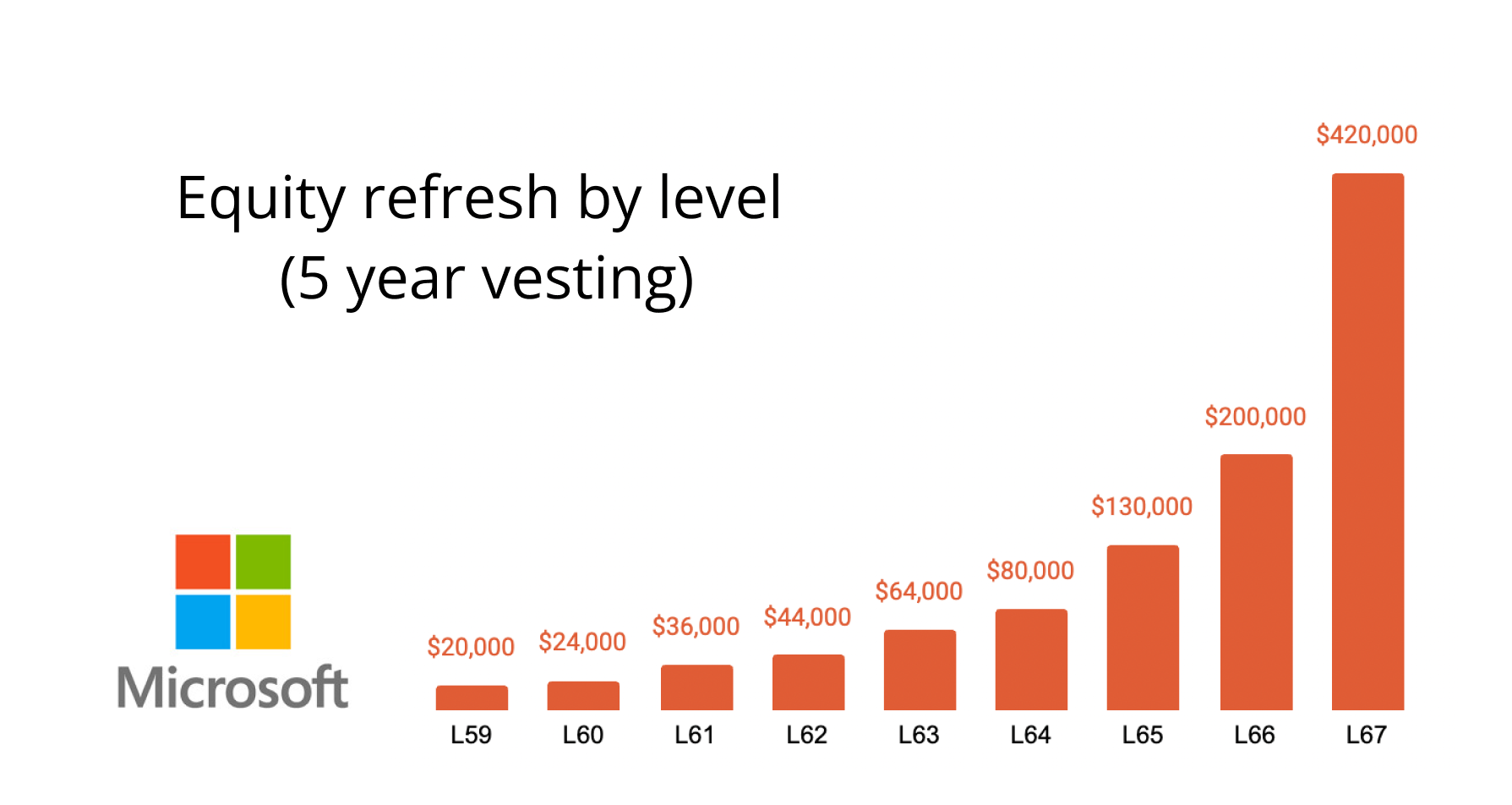
Microsoft
Microsoft is an American technology corporation which produces computer software, consumer electronics, and personal computers. It developed the Windows line of operating systems, the Microsoft Office suite, and the Internet Explorer and Edge web browsers. Microsoft is often credited for ushering in the modern PC era.
Performance Review
Evaluation
See relevant discussions involving Microsoft engineers on Taro.
Connect is a private document that every employee creates to document their work. Managers combine this with peer reviews (perspectives) and other feedback to prepare for performance calibration.
Each Connect document should cover the three circles of impact -- your work in the context of the broader team:
- Key individual accomplishments that contribute to team, business, or customer results
- Your contributions to the success of others
- Your results that were built on the work, ideas, or effort of others
The new Connect format has 3 main sections:
Reflect On The Past
- Summarize your impact (based on the three circles of impact)
- Share how you applied a growth mindset (Consider when you could have done something differently. How will you apply what you learned in the future?)
This is not the section to talk about all the mistakes you made. Instead, talk about what you learned and what impact you want to have in the future.
Plan For the Future
- Review your core priorities
- Identify opportunities for growth
Conversation Starters
This section is optional - Most people leave this blank.
- What is your strength that you would like to apply at work?
- When do you feel motivated and energized?
- When do you lose motivation or energy?
- Add any other conversation topics (career, recognition, opportunities, alignment)
Feedback
Peer feedback ("perspective") is generally collected right before Connect (May and November), but technically this process is totally separate from Connect. Microsoft's system for peer feedback is driven by the employee, not the manager.
When requesting a perspective, ping them separately with some context on the work you did together. You can also include info on why their feedback is important (e.g. you're up for promo).
Interestingly, all feedback delivered through perspective is public, which means that the identity of the person writing the feedback is revealed to the recipient and their manager. Unlike most companies, there is no mechanism to remain anonymous. Because of this, almost all feedback tends to very positive, discussing your strengths and impact.
Most people will get feedback from 6-7 people. Managers will them combine Connect with peer feedback to create a 1 pager for each employee to present a case in the annual rewards discussion.
Calibration
The Process
Microsoft has moved away from the terminology of "calibration" or "stack ranking", so these meetings are called talent reviews or talent celebrations 😅
Managers create a 1 pager for each report based on the Connect document. This document is not shown to employees.
The 1 pager is taken to the meeting with relevant managers to discuss each report. The manager presents each of their employees objectively, who are then compared with others to ensure fairness. The output of this system is the compensation adjustment.
The main outcome of calibration is a number (generally 0-200) assigned to each employee. The HR team provides a default budget of 110 for each employee, so the extra 10 points can be given out to high performers. Managers decide how to allocate points among high and low performers.
The exact number of points that you receive is generally not revealed, but you can reverse engineer it through your compensation increase.
The Dark Era
Microsoft famously applied a rigid and brutal stack ranking philosophy in the Ballmer era, until 2013.
This system forced managers to grade employees against one another and give them a ranking on a scale of 1 to 5. This was applied at the team level, which led to intense competition (and backstabbing) among colleagues. This policy has been removed since November 2013.
Compensation
Microsoft generally pays less than Meta, Google, and other top-of-market companies.
Employees get to see their year-end bonus (in stock and cash) by September, so that indicates how much the company wants to keep you around. Compensation adjustments only happen after the Connect review which happens in June. In addition, you must be employed at Microsoft for 9+ months in order to be eligible for a compensation increase.
Internally employees are given a rating between 0 and 200:
- 150+ get max rewards
- 100 - 150 gets a medium increase
- <100 indicates "needs improvement"
Because employees are not formally given ratings at Microsoft, your compensation is the true measurement of your performance.
There are 3 components to compensation changes at Microsoft:
Bonus
This is a one-time cash payment.
| Level | Bonus (% of salary) |
|---|---|
| SDE 1 (59-60) | 10% (max 20%) |
| SDE 2 (61-62) | 10% (max 20%) |
| Senior (63-64) | 15% (max 30%) |
| Principal (65-66) | 20% (max 40%) |
| Principal (67) | 30% (max 60%) |
Equity
As part of annual rewards, Microsoft grants new equity to employees based on level. New hire stock awards vest over 4 years, but refresh equity vests over a 5 year period. Vestsing happens every quarter (February, May, August, and November).

| Level | Max equity grant ($) |
|---|---|
| L59 | $20,000 |
| L60 | $24,000 |
| L61 | $36,000 |
| L62 | $44,000 |
| L63 | $64,000 |
| L64 | $80,000 |
| L65 | $130,000 |
| L66 | $200,000 |
| L67 | $420,000 |
| L68 | 🤑🤑 |
In addition to the above standard grants, managers can also give out Special Stock Awards (SSAs), which are discretionary awards given to high-potential, high-performing employees. SSAs may be given to employees to soften an equity drop from an equity cliff (after 3-4 years), or to retain employees who received a competing offer.
Salary
Unless you get promoted, salary adjustments ("merit increases") are insignificant. Typically they are enough to keep up with inflation, around 1-2%.
Performance Improvement Plan
Relative to other companies, Microsoft is very slow to fire employees
Unlike most other Big Tech companies, Microsoft doesn't have a formal Performance Improvement Plan (PIP). If your manager indicates that you're below expectations for 2 years, you’ll likely get fired in 3rd year.
Promotion
Promotion Guide
No extra documentation is needed for promotion
Promotions are lagging, which means you must perform at the next level consistently. Generally that means you should be above target for at least 2 Connect cycles. For senior and principal level promotions, you must be handling the responsibilities of the higer level for 1-2 years.
The higher your level, the more approvals you need for your promotion:
- Up to L62 (high Mid-Level Engineer): The direct manager approves
- L62 to L64 (up to Senior Engineer): The skip manager approves (L67, or Group Engineering Manager)
- L65+ (Principal Engineer+): Need to demonstrate cross-org impact, and the VP (or CVP) must approve
Unfortunately, it's harder to get promoted on a team with many talented people. There are limited spots available for promotion, and it's generally harder to get promoted on a team which has many high-performers.